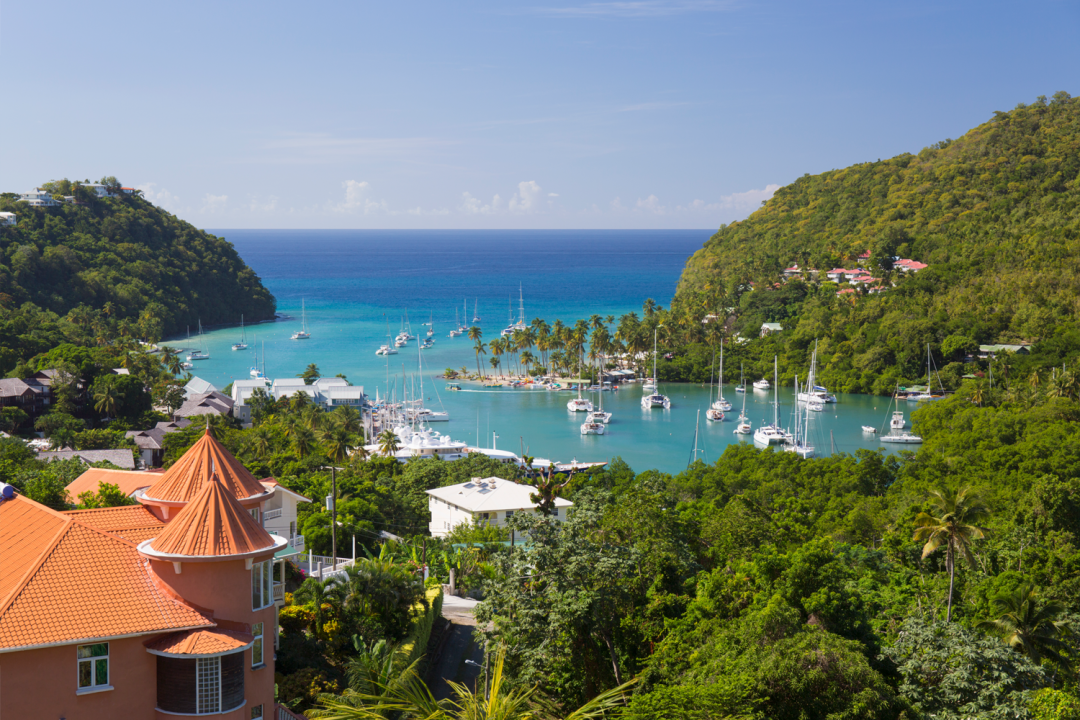Where in the world is it best to be a woman? You might think that’s a tricky question to answer, given the number of factors that go into the mix, but a new BBC podcast has pledged to find out. The format of the show is that on any given topic – body image, say, or fair pay – two women will speak from two countries that ‘are getting things right’. The one that proves more convincing could win ‘a place in our female fantasyland’, the composite, woman-friendly utopia that the programme is building as its ultimate goal.
Although the word ‘wellbeing’ was flourished in the pitch, the hosts Sophia Smith Galer and Scaachi Koul assure us that they are sceptical of the wellness industry ‘so you won’t be getting any horse yoga or vaginal steaming here’. Instead, they’ll be ‘getting into the facts, exploring the nuances and the complexities’.
While catcalling in the UK signals ‘danger’, in St Lucia it semaphores something benign
First up was St Lucia, chosen for its body-positive atmosphere in which ‘fullness is encouraged’. It appears the hosts were led to St Lucia largely on the basis of a blog by ‘a fat acceptance activist called Stephanie Yeboah’ who – self-conscious about her weight in other settings – felt relaxed enough there to strip down to a bikini on the beach, to ‘compliments and cheers’.
A St Lucian historian and artist, Fiona Compton, assured the hosts that it is indeed ‘an extremely complimentary community’. In fact, a friend of hers had said, ‘Any time my confidence is low, I’ll go to Castries’, the capital, because there will be men shouting out appreciative remarks. But it wasn’t all good, she said: the legacy of slavery means that lighter complexions and eyes are disproportionately prized, as is a strong physique, which can make life hard for disabled people.
The hosts were interested in the effects of colonialism on body image, and the damaging promotion of ‘thinness and whiteness’ as a beauty standard. Oddly, they almost completely ignored the effects of capitalism: the global exploitation of female self-loathing by an increasingly rapacious beauty and plastic surgery industry, now busy remaking all sizes of bodies from all races in all possible directions. Plenty of young women seem to be fleeing from ‘whiteness and thinness’ by baking themselves on sunbeds, or going under the knife for bigger, rounder bottoms, sometimes with fatal consequences.
As a contrast to all that, the robust Caribbean body confidence described here is certainly appealing. But according to Compton, it partly derives from a culture of strangers freely trading admiring remarks on specific physical traits, the kind of thing that would instantly trigger a mass nervous breakdown in any British or American HR department. It took quite a bit of work from Koul to try to smooth over this contradiction. While catcalling in the US or UK ‘is signalling danger’, she said, in St Lucia it semaphores something benign. That’s an exaggeration in both directions, surely – particularly as a quick dive into the St Lucia Star newspaper reveals some thoroughly fed-up female journalists complaining about street sexual harassment and X-rated catcalls.
Nonetheless, St Lucia won out over Malta, specifically because ‘our female fantasyland will be full of the mutual body appreciation of St Lucia’. As the episode rolled to its conclusion, you could almost hear the screams of an undernourished concept being forced into increasingly convoluted shapes. I wonder where they’ll go next.
The Canadian punk-pop singer Avril Lavigne has been dogged for years by one of the weirder conspiracy theories on the internet: that she died in 2003 and was replaced by a body double called Melissa. The story goes that Melissa was first hired to absorb the media heat at times when Lavigne felt overwhelmed, and then found herself landed with being Avril as a full-time job.
A funny, fast-talking Irish comedian called Joanne McNally has taken up the ‘investigative’ challenge of establishing whether or not the current Avril is an imposter. Although the nonsense of the premise soon wears thin, even in jest, what emerges is a kind of wandering satire on what can happen to a brain long steeped in the internet, with disorienting glimpses of the energetic logic that can weave itself around great gaps in common sense.
No one ever accused Edith Piaf of being her own double, probably because the elements that made up ‘The Little Sparrow’ – the tiny, frail body out of which spilled that huge, thrilling voice – would have been impossible to replicate. She knew her market, however, and ramped up her already considerable drama, even falsely claiming to have been born on the streets instead of the hospital.
In Edith Piaf in Five Songs, different writers gave their take on specific songs and their story, beginning with Lucy O’Meara on ‘Milord’ and the glittering squalor of chanson réaliste, and ending with Elizabeth Alker on the defiant ‘Non, je ne regrette rien’. At 14 minutes apiece, each one was a distinctive Piaf-sized treat.








Comments